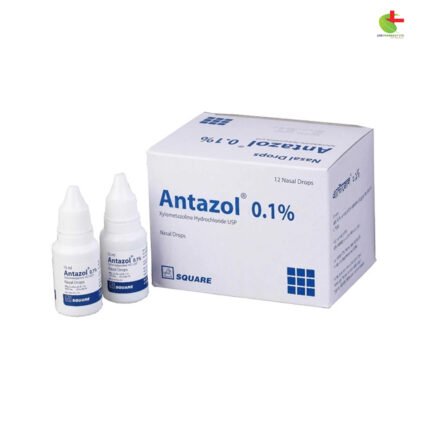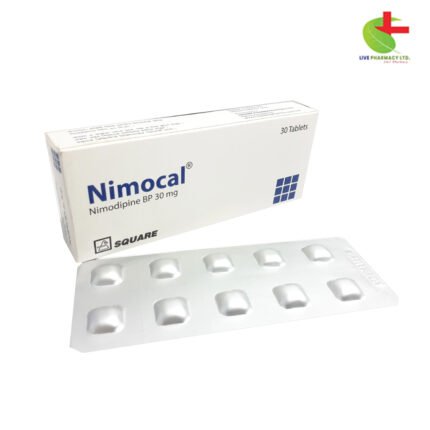Nidipine SR
6.40৳ Strip
- Nidipine SR: A reliable medication for managing essential and renal hypertension
- Effectively controls hypertension during pregnancy and coronary bypass surgery
- Provides relief for unstable angina, myocardial infarction, and Raynaud’s phenomenon
- Trusted solution for quality medications and expert guidance
 Brand
Brand
|
Square Pharmaceuticals PLC |
|---|---|
 Generics
Generics
|
Nifedipine |
Indications
Nidipine SR serves as a vital tool in managing various forms of essential and renal hypertension. It’s also instrumental in controlling hypertension during pregnancy and coronary bypass surgery. Additionally, Nidipine SR plays a crucial role in prophylaxis and treatment for unstable and variant angina, myocardial infarction, and silent myocardial ischemia. Furthermore, it’s prescribed for conditions like Raynaud’s phenomenon and heart failure.
Pharmacology
Nifedipine, the active ingredient in Nidipine SR, acts as a calcium channel blocker, effectively inhibiting the influx of calcium ions into muscle cells. This action primarily targets arterial vessels, resulting in vasodilation of main coronary and systemic arteries, ultimately reducing blood pressure. However, at higher doses, Nifedipine exhibits direct negative inotropic effects on cardiac muscles.
Dosage & Administration
For angina, the initial dosage of Nifedipine is typically 10 mg thrice daily, with adjustments as necessary. In cases of Raynaud’s phenomenon, the recommended dosage is also 10 mg thrice daily, with a maximum daily intake of 60 mg. Dosage adjustments may be required for patients with liver dysfunction, while those with renal impairment generally don’t need dosage modifications.
Interactions
Nidipine SR may interact with various medications, enhancing or reducing their effects. For instance, ACE inhibitors may enhance its hypotensive effect, while antiarrhythmics may reduce plasma concentrations of certain drugs like quinidine.
Contraindications
Patients with conditions such as cardiogenic shock, advanced aortic stenosis, or hypotension should avoid Nidipine SR. Additionally, it’s contraindicated for nursing mothers and those with gastrointestinal obstruction or inflammatory bowel disease.
Side Effects
Common side effects of Nidipine SR include headache, flushing, lethargy, and rash. In some cases, patients may experience jaundice or ischaemic pain. However, these reactions typically subside upon discontinuation of therapy.
Pregnancy & Lactation
While there are limited studies on its effects during pregnancy, Nidipine SR should only be used if the potential benefits outweigh the risks to the fetus.
Precautions & Warnings
It’s essential to swallow Nidipine SR tablets whole, without chewing or breaking them. Caution is advised in patients with poor cardiac reserve, and treatment should be discontinued if ischaemic pain worsens. Patients with diabetes may require adjustments in control, and caution should be exercised in treating those with renal disease.
Therapeutic Class
Nidipine SR belongs to the therapeutic class of calcium channel blockers.
Storage Conditions
Store Nidipine SR away from strong light, in a cool place, preferably in its original packaging.













Reviews
There are no reviews yet.